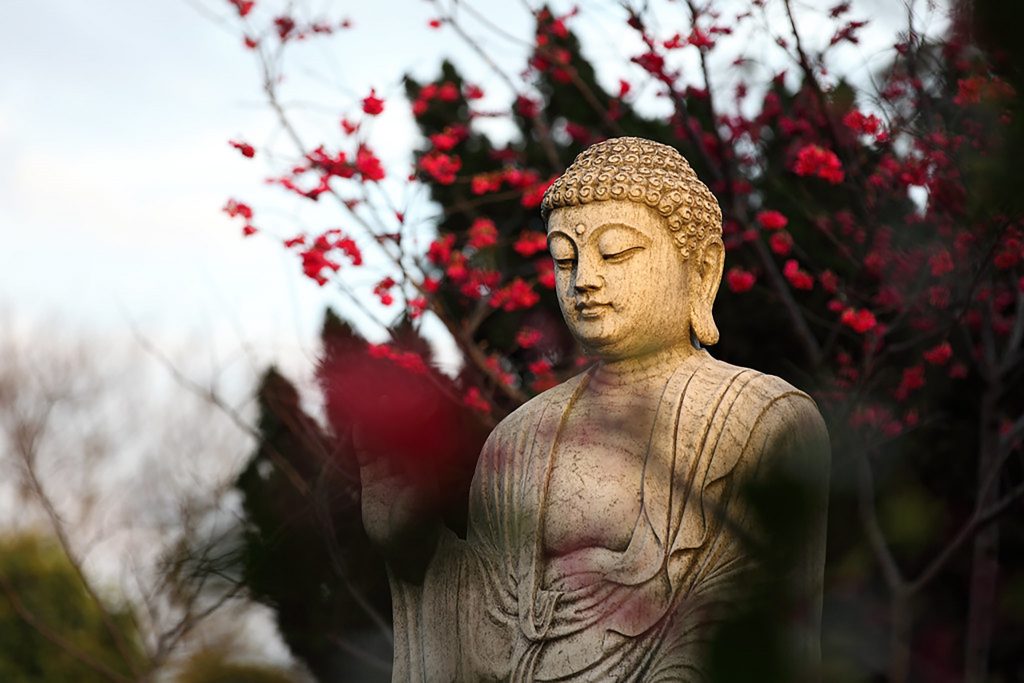Blog & Articles
Cultivating Karuṇā

In the tapestry of Buddhist teachings, one thread that resonates deeply with my practice and teachings is the profound exploration of compassion, or karuṇā in Pali. I invite you to explore karuṇā with me, drawing upon Theravada Buddhist instructions to understand the transformative power of compassion as a meditation practice.
As we delve into the practice, I emphasize a methodical approach to cultivate compassion through meditation. It all begins with the establishment of mindfulness. Settle into a comfortable posture, grounding oneself in the present moment, and focusing on the breath—a simple yet profound starting point.
From here, we progress into cultivating loving-kindness (Metta), extending these benevolent feelings towards ourselves, loved ones, acquaintances, and even those with whom we may have conflicts. This sets the stage for a more profound exploration of compassion.
Next comes a contemplation of the nature of suffering (dukkha). It’s about recognizing, with deep insight, that suffering is a universal experience. This contemplation becomes the soil in which the seeds of genuine compassion can take root.
Then, we actively wish for the alleviation of suffering. Starting with ourselves, we extend this heartfelt wish to all beings. This is not a mere intellectual exercise; it’s a visceral, emotional experience—a genuine opening of the heart.
The practice expands progressively, encompassing friends, foes, and ultimately, all living beings. Through visualization, we envision the dissipation of suffering and the emergence of universal happiness and well-being. It’s a journey of the heart, a journey towards compassion.
Why is cultivating compassion crucial for ethical living and liberation? Let me share my perspective.
Compassion, when genuinely embraced, becomes a natural deterrent to harm. When coupled with wisdom, it’s like a guiding light, steering us away from thoughts, words, and actions that cause suffering. The care for the well-being of others becomes an innate part of our ethical compass.
Moreover, compassion is a powerful antidote to the chains of self-centeredness. As we extend compassion beyond our immediate concerns, we undergo a profound shift. The ego, with its selfish desires, begins to loosen its grip, making space for a broader, interconnected awareness.
In the Theravada tradition, liberation (nibbana or nirvana) is the ultimate goal. Compassion, by its very nature, aligns seamlessly with this path. It dissolves the barriers of self-centered desires, paving the way for a selfless and inclusive awareness—the essence of liberation.
To sum up everything that has been stated thus far, the meditation practice of compassion is not just a technique; it’s a journey—a journey towards ethical living and liberation. As we walk this path together, may our hearts open, our minds expand, and may the seeds of compassion we sow bear fruits of freedom for ourselves and all beings.

Johnathan Woodside
Johnathan is an Insight Meditation teacher offering Dharma instruction rooted in the Theravada tradition of ethics, concentration and wisdom.
Recent Posts
Have Any Question?
Greetings, fellow Mediators! I invite you to gather your strong determination for study and practice with me. Feel free to share your questions, and together, we’ll realize the liberating insights of the Dharma.

